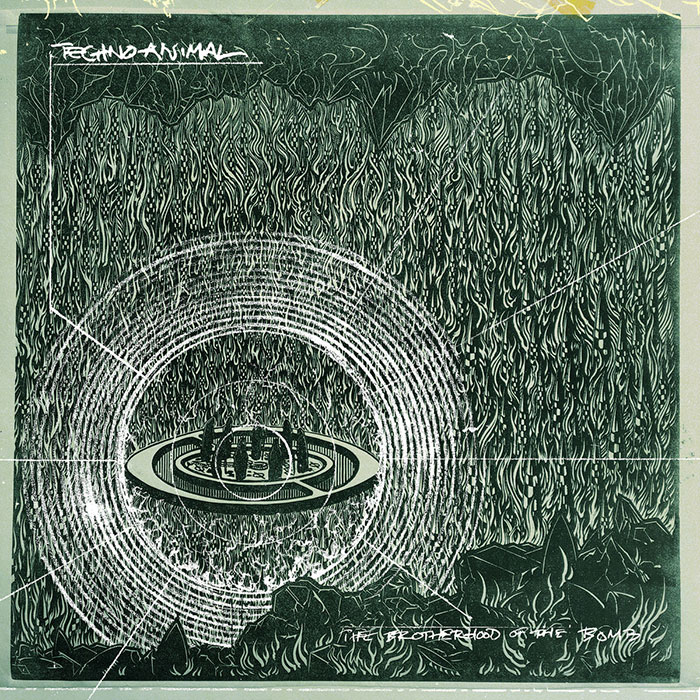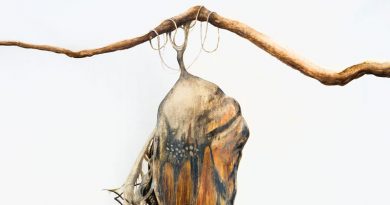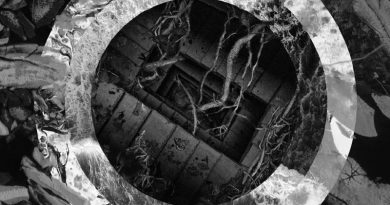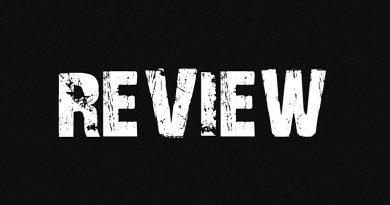Review: Techno Animal ‘The Brotherhood Of The Bomb’ [Reissue]
The amazing thing about music (or the arts in general) is that it is a medium that can serve all masters. The angry young man in me used to get frustrated by people seemingly settling for the mediocre or the ‘I just listen to whatever comes on the radio’ crowd, but these days it seems like a waste of energy. If you like your sonic diet to be a little more avant garde there are thankfully those who choose to walk a different path and look to subvert the norm.

Two such individuals who have carved their unique way, collectively and separately, are Kevin ‘The Bug’ Martin (GOD) and Justin K Broadrick (Godflesh/Jesu/JK Flesh). Combining under the banner of Techno Animal the pair spent considerable time in the studio creating distorted hip-hop beats, dystopian dub breaks and nightmarish ambient soundscapes that saw them championed by the likes of The Beastie Boys and collaborating with Alec Empire and the emerging dälek.
The duo would go on to release six full-length albums and cast a dark influential shadow on the electronic music scene with their experimental blend of ambient passages, panoramic themes and violent clashing beats. Whilst no strangers to extreme metal, industrial, dub and dark ambience, Techno Animal would also embrace the sounds of Illbient, an art movement subgenre of experimental electronica and hip hop, a term supposedly penned by DJs Olive (The Audio Janitor Gregor Asch) and Spooky (Paul Dennis Miller) in New York during the early nineties.
Broadrick’s love of hip hop is well documented in the melting pot of Godflesh’s Pure (1992), a sound he returned to reference in last year’s Purge as well as his remix dub fascination (Songs Of Love and Hate in Dub) and ambient exploration (Jesu).
With Martin in the studio, the two confess to ‘just loving tweaking the fuck out of the tunes and going mad on the aux sends/returns’ and ‘fueled on the atonality of mutating electro acoustic found sounds, and fucking with the stereo field as much as possible, whenever possible’.
Born from a confessed love of Dillinja’s bass sound and an addiction to the new breed of rap, by album number four the pair had truly defined their vision of what Techno Animal should do and recruited a cast of guest vocalists that included El-P, Rubberoom, M. Sayyid and Rob Sonic among others to help craft the assault on the senses that is The Brotherhood Of The Bomb.
Released on 11th September 2001 (yep that one), the album may not have made a huge commercial splash, but its gritty legacy has endured, and this year sees a lovingly remastered reissue (out now digitally) and a first time vinyl pressing courtesy of Relapse that’ll be released on 16th February.
Opening with the combative beats of Cruise Mode 101 featuring the vocal talents of Rubberoom who spits his flow over old school ‘90s flavoured rhythms that give a nod to the stylings of Public Enemy. The music itself shows the mission statement to create concussive bass effects, the track clanking and clashing like the blueprint was torn up and fed through an industrial thresher.
Turntables scratch over cavernous drones, like fight music at the wrong speed…
The relentless, oppressive sounds blend the mechanical and organic in a dense stew where discombobulating scrapes and bends slam into your consciousness and disrupt with glee, backing up the assertion that Techno Animal is too hip-hop for metalheads and too metal for hip-hop fans.
Glass Prism Enclosure continues with clicking and vertigo-inducing dub drops, built around faltering, off kilter beats. The slow cadence of the ensemble of Beans, High Priest and M. Sayyid shows the accented pronunciation of the lyrics despite the dualling voices.
Hypertension is the first instrumental (The Brotherhood… is split 50/50 in this regard) and allows the music to feature atmospheric loops while the creeping progression and dissection of the structure give a more dramatic focus to the soundtrack. Coldly mechanical and nightmarish, it gives off the feel of involuntary slow motion jerking motions.
Rob Sonic brings back the barking, indignant voice for DC-10, starting with a metronome-like feel akin to ancient machinery starting up, whiny gnarled vox introduces the beat as it morphs. Turntables scratch over cavernous drones, like fight music at the wrong speed.
Consecutive voiceless tracks Robosapien, Freefall and Monoscopic showcase a spectrum of reverb, catchy beats, woozy dub and quirky pop sounds, the latter almost sharing similar ground to a Pet Shop Boys or Depeche Mode remix. Without vocals, these add layers to the overall kaleidoscope of sensory assaults and levels of deconstruction that Broadrick would revisit on the likes of Godflesh’s Post-Self album. At times the dark, trippy passages wouldn’t sound out of place on Massive Attack’s Mezzanine.
Out of the five remaining tracks, Piranha, We Can Build You and Hell see the return of vocals as Toastie Taylor, Anti-Pop Consortium and dälek add their diverse talents and lyrical dexterity to the controlled abrasion. Whilst Sub Species and Blood Money throw out breaks and samples that include headache inducing squalls and clashing beats that will be thumping deep inside your brain long after listening.
This twelve-track album is undoubtedly one of, if not the, strongest release the duo have put their name to. The one thing about this album is the lack of techno dance music that their name would suggest, however, in this case, it refers to the studio processes and experimentation that gave birth to the unique sounds that the collection features.
The Brotherhood Of The Bomb is an album that could be described as of its time and out of time simultaneously as it defies genres, expectations and at times descriptions. It may have eluded wider consciousness at the time of its release, but to those in the know, it has left a lasting impact and deserves this loving reissue.
Label: Relapse Records
Techno Animal: Bandcamp | Spotify
Justin K Broadrick: Facebook | Bandcamp | Spotify | Twitter | Instagram
The Bug: Facebook | Bandcamp | Spotify | Twitter | Instagram
Scribed by: Mark Hunt-Bryden



